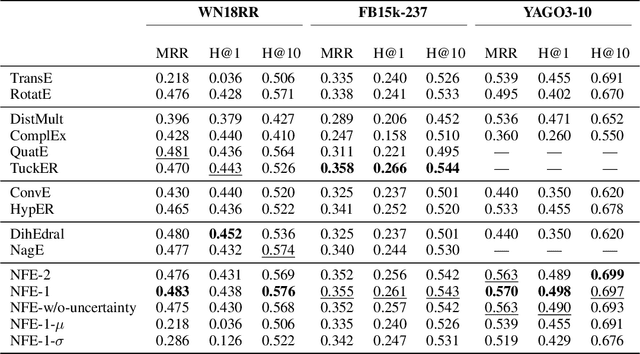Knowledge Graph Embedding by Normalizing Flows
Paper and Code
Sep 30, 2024


A key to knowledge graph embedding (KGE) is to choose a proper representation space, e.g., point-wise Euclidean space and complex vector space. In this paper, we propose a unified perspective of embedding and introduce uncertainty into KGE from the view of group theory. Our model can incorporate existing models (i.e., generality), ensure the computation is tractable (i.e., efficiency) and enjoy the expressive power of complex random variables (i.e., expressiveness). The core idea is that we embed entities/relations as elements of a symmetric group, i.e., permutations of a set. Permutations of different sets can reflect different properties of embedding. And the group operation of symmetric groups is easy to compute. In specific, we show that the embedding of many existing models, point vectors, can be seen as elements of a symmetric group. To reflect uncertainty, we first embed entities/relations as permutations of a set of random variables. A permutation can transform a simple random variable into a complex random variable for greater expressiveness, called a normalizing flow. We then define scoring functions by measuring the similarity of two normalizing flows, namely NFE. We construct several instantiating models and prove that they are able to learn logical rules. Experimental results demonstrate the effectiveness of introducing uncertainty and our model. The code is available at https://github.com/changyi7231/NFE.
 Add to Chrome
Add to Chrome Add to Firefox
Add to Firefox Add to Edge
Add to Edge